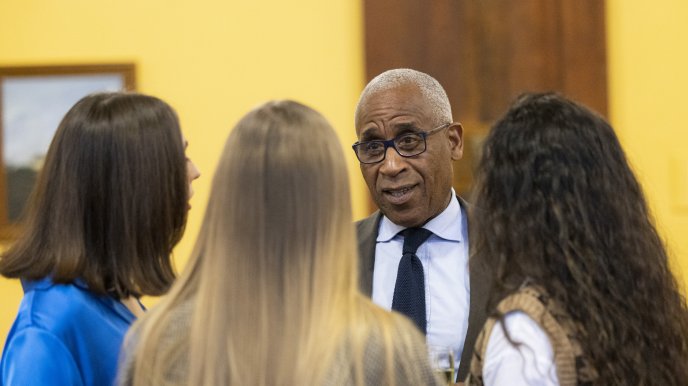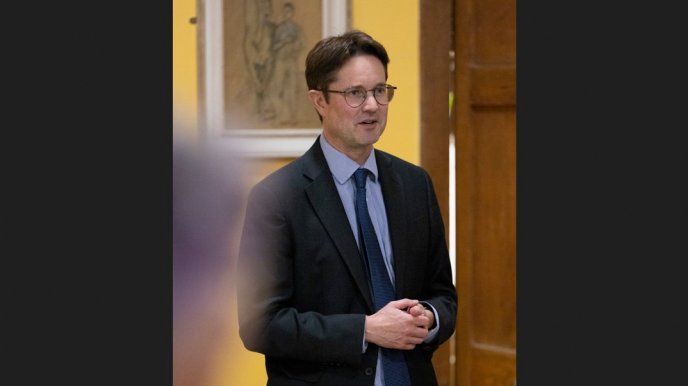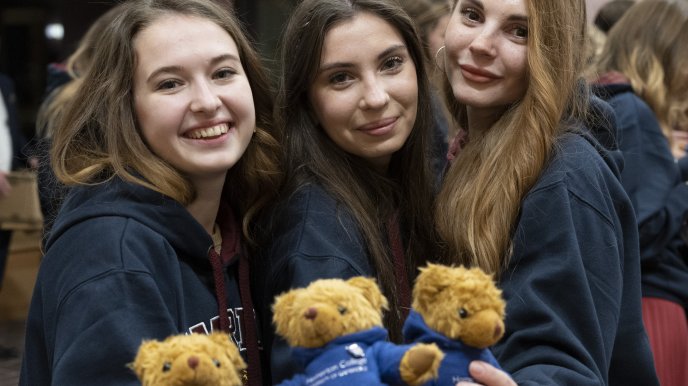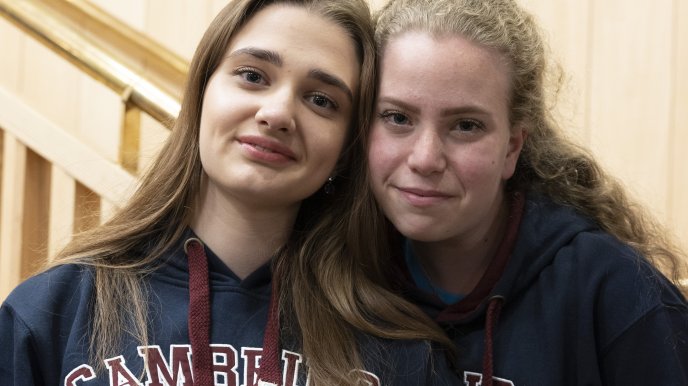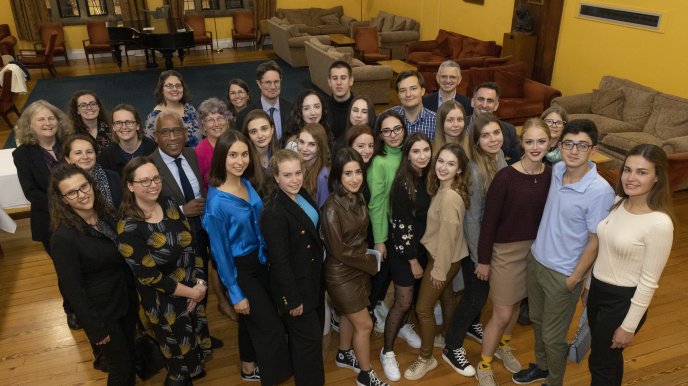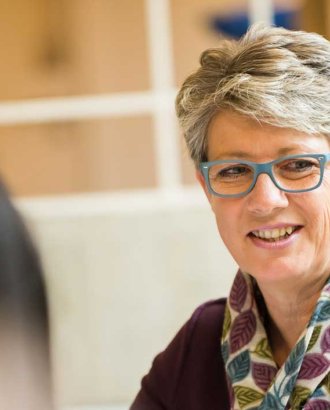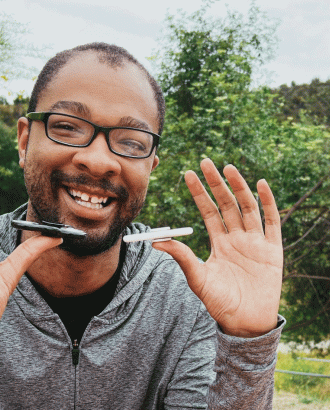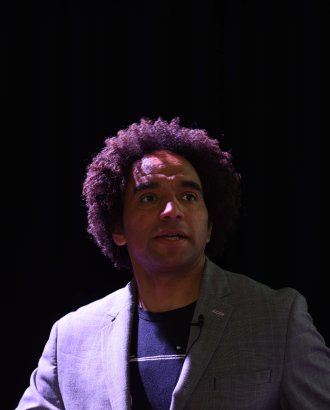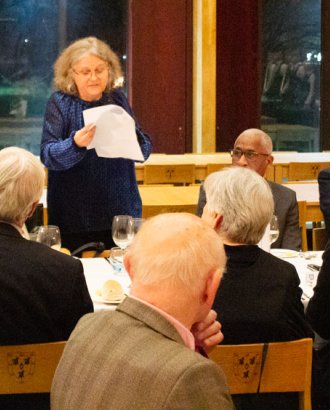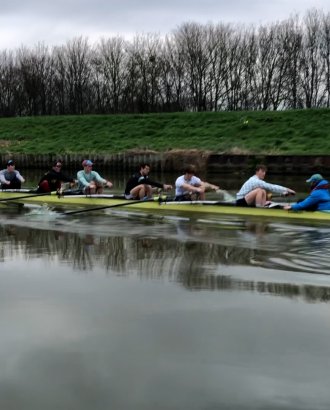Homerton College has been home for the past seven weeks to 20 students from Kharkiv National Medical University, brought to Cambridge for a bespoke programme of clinical placements, to help continue their studies while war rages around Kharkiv.
Even prior to the Russian invasion of Ukraine in February, the students had undertaken much of their training online because of Covid-19, with very little interaction with patients.
While full-time Cambridge medical students were on their summer break, Cambridge University's School of Clinical Medicine created a seven-week programme for the displaced Ukrainians, focusing on core medicine, surgery and a specialism of the students’ choice. The course included lectures, observation and practical experience and was funded by a very generous anonymous donation.
Homerton College was delighted to be able to support the initiative by providing the students with a home base in Cambridge, giving them accommodation, library access, catering, and a quiet campus to bond as a group and to meet other Homerton students.
The visiting students were supplied with pre-paid cards allowing them to buy their meals in the College dining hall, and have been accommodated in en-suite student rooms. While the training programme means they have had a full study timetable, they have enjoyed a taste of collegiate life, including two postgraduate Formal Halls attended by students and Fellows.
Their stay at Homerton was organised by Postgraduate Tutor Dr Melanie Keene, who said "We've really enjoyed getting to know our visitors: they've been a lively presence in College. They have all relished the opportunities their clinical placements have provided for hands-on medical work, whether on ward rounds, in surgery, and in their various specialities."
For student Vilena Chupina, who had been living in Germany with her family since the invasion, the opportunity to study at Cambridge and enjoy a hands-on approach to learning was impossible to pass up.
Life in Homerton has been awesome. We’ve got all this wonderful space – I’ve been sitting outside in the orchard, showing it to my parents on FaceTime. Some of our group have also got to know some of the Homerton students who have stayed in College for the summer, so it’s been great to be part of the community.
Although everyone had been told to prepare for the invasion, no one believed it would actually happen. I still can’t believe it’s happening, in Europe, in the 21st century. We’ve moved a lot over the past six months, so it was very tough for my mum to let me go, on my own, to yet another strange country. But she’s a doctor too, so she understands how important it is for me to get some practical training.
Paul Wilkinson, Dean of the University of Cambridge School of Clinical Medicine, who initiated the programme, said:
“It has been lovely having the Ukrainian students with us the last few weeks. Some of their stories have been heartbreaking, but it has been great to see their positive outlook and hopes for the future. It has been wonderful seeing their hard work and determination to use this opportunity to improve their clinical skills.”
The students had to provide their CVs and academic marks to date and undertake an English test in order to apply for the course. But their linguistic proficiency was stretched to its limits in a medical context. “There are lots of abbreviations in cardiology!” laughs Vilena.
From their patients, perhaps afraid and in pain themselves, one might have expected a mixed reaction to being the guinea pigs for young trainees. But, according to the students, the response has been uniformly positive.
“The patients have been so lovely. As soon as they realise we’re from Ukraine they say ‘You’re so welcome here! We’re so shocked by what’s been happening!’”
The academic schedule has been necessarily intense, as the programme attempts to pack in enough content and experience to compensate for the students’ severely disrupted education. But they have made the most of their weekends, exploring Cambridge, London and Ely. “We did Tower Bridge, Big Ben, Buckingham Palace…we saw so much in London,” says Vilena. “But I loved Ely. It’s so peaceful there.”
As the course concludes, the students will be dispersing, some returning to safe havens in Germany and Poland, and others back to Ukraine. Their online studies will continue, with possible hybrid learning. But as their country’s future remains unstable and uncertain, this group of medical students is adamant they want to be part of the solution.
"Ukraine is going to need good doctors.”
Homerton’s Principal, Lord Simon Woolley, welcomed the visitors to the community of Homerton alumni, and said:
“Hosting the Ukrainian medics, as part of the wider Cambridge University support for Ukraine, is a source of great pride for me personally and for all of us at Homerton.”
